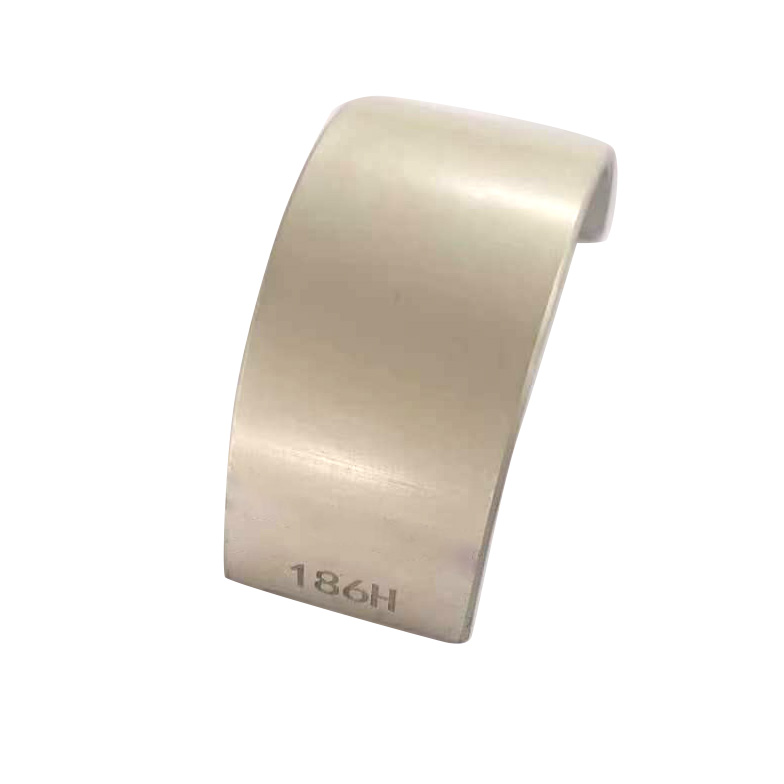
- English
- 简体中文
- Español
- Português
- русский
- Français
- 日本語
- Deutsch
- tiếng Việt
- Italiano
- Nederlands
- ภาษาไทย
- Polski
- 한국어
- Svenska
- magyar
- Malay
- বাংলা ভাষার
- Dansk
- Suomi
- हिन्दी
- Pilipino
- Türkçe
- Gaeilge
- العربية
- Indonesia
- Norsk
- تمل
- český
- ελληνικά
- український
- Javanese
- فارسی
- தமிழ்
- తెలుగు
- नेपाली
- Burmese
- български
- ລາວ
- Latine
- Қазақша
- Euskal
- Azərbaycan
- Slovenský jazyk
- Македонски
- Lietuvos
- Eesti Keel
- Română
- Slovenski
- मराठी
How Long Do Engine Bearings Usually Last?
2025-02-18
Engine bearings are crucial pieces that lower friction between an engine's moving parts. They guarantee effective functioning and smooth rotation by supporting the crankshaft and camshaft. Vehicle owners may properly maintain their engines and save expensive repairs by being aware of their lifespan.
Average Engine Bearing Lifespan
Engine bearing longevity is influenced by a number of variables, including as manufacture quality, driving circumstances, and maintenance. Engine bearings can last anywhere from 100,000 to 200,000 miles under ideal circumstances. However, depending on how well the engine is maintained, this lifespan might vary greatly.

Factors Affecting Engine Bearing Longevity
1. Proper Lubrication
Engine bearings require adequate lubrication to function correctly. Insufficient or contaminated oil can lead to increased friction, overheating, and premature wear. Regular oil changes using high-quality engine oil can significantly extend bearing life.
2. Engine Load and Driving Habits
Aggressive driving, frequent towing, or operating in extreme conditions (high temperatures, heavy loads) can put additional stress on engine bearings. This can cause them to wear out faster than in vehicles driven under normal conditions.
3. Quality of Engine Assembly
Manufacturing defects or improper installation of bearings can lead to early failure. Engines built with high-quality materials and precise assembly techniques tend to have longer-lasting bearings.
4. Contaminants and Debris
Dirt, metal particles, and other contaminants in the oil can damage engine bearings. Using a high-quality oil filter and ensuring a clean oil system can help prevent premature wear.
5. Engine Overheating
Excessive heat can break down engine oil and reduce lubrication effectiveness, leading to bearing damage. Keeping the cooling system in good condition can help maintain optimal engine temperatures and prolong bearing life.
Signs of Worn Engine Bearings
If engine bearings start to wear out, they often exhibit warning signs, such as:
- Knocking or rumbling noises from the engine, especially under acceleration.
- Low oil pressure, which can indicate excessive bearing clearance.
- Metal shavings in the oil, a sign of bearing wear and tear.
- Overheating engine, which can result from increased friction and reduced lubrication.
How to Extend Engine Bearing Life
- Follow a regular maintenance schedule and change oil and filters on time.
- Use high-quality engine oil that meets manufacturer specifications.
- Monitor oil pressure to detect early signs of bearing wear.
- Avoid excessive engine loads and aggressive driving habits.
- Ensure a well-functioning cooling system to prevent overheating.
In conclusion
Under perfect circumstances, engine bearings can last over 100,000 miles, but high load, pollution, and improper maintenance can drastically reduce that amount of time. Their longevity can be increased with routine oil changes, appropriate lubrication, and careful engine maintenance, guaranteeing dependable and seamless engine operation for many years to come.
Our factory provides China automotive engine bearing, motorcycle engine bearing, diesel engine bearing, ect. We are recognized by everyone with high quality, reasonable price and perfect service. You can wholesale products from us, we are pleased to serve you!Visit our website at www.ycmyzw.com to learn more about our products. For inquiries, you can reach us at dfmingyue8888@163.com.




